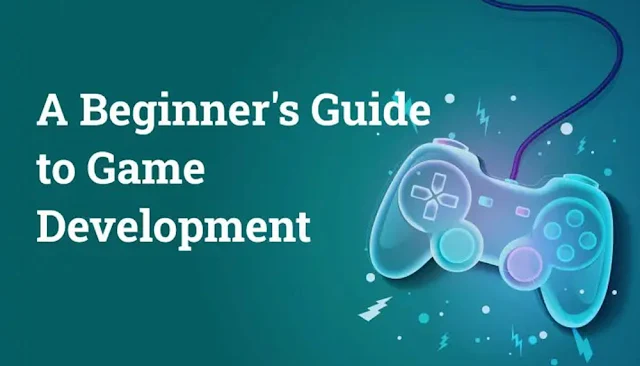Game development is a fascinating and rewarding field that combines creativity, programming, and problem-solving skills. If you're a beginner interested in game development, here's a step-by-step guide to help you get started:
1. Define Your Goals and Interests:
- Identify the type of games you want to create (e.g., 2D, 3D, mobile, PC).
- Determine the game genre (e.g., action, strategy, simulation).
2. Learn the Basics of Programming:
- Choose a programming language suitable for game development (e.g., Python, C#, JavaScript).
- Familiarize yourself with basic programming concepts like variables, loops, and conditionals.
3. Understand Game Design Principles:
- Learn about game mechanics, player interaction, and user experience.
- Study successful games to understand what makes them engaging.
4. Select a Game Development Platform:
- Choose a game development platform/engine (e.g., Unity, Unreal Engine, Godot).
- Explore the features and community support for each platform.
5. Learn the Basics of the Chosen Game Engine:
- Follow introductory tutorials provided by the engine's documentation.
- Understand the interface, scene management, and asset importing/exporting.
6. Create Simple Projects:
- Start with small projects to practice and reinforce your learning.
- Experiment with different game mechanics and features.
7. Understand Graphics and Animation:
- Learn the basics of 2D and 3D graphics.
- Understand how to create and animate game assets.
8. Explore Sound and Music:
- Learn about sound effects and music in games.
- Experiment with integrating audio into your projects.
9. Study Game Physics:
- Understand the basics of game physics for realistic movements and interactions.
- Implement physics-based features in your projects.
10. Build a Portfolio:
- Showcase your projects in a portfolio to demonstrate your skills.
- Include both finished games and works in progress.
11. Join the Game Development Community:
- Participate in forums, online communities, and game development events.
- Seek feedback on your projects and learn from others.
12. Continue Learning and Updating Skills:
- Stay updated on new technologies and trends in game development.
- Continue to expand your knowledge and skill set.
13. Consider Specializing:
- Explore specialized areas like game design, graphics programming, or AI.
- Identify areas you enjoy and want to focus on.
14. Start Collaborating:
- Collaborate with other game developers, artists, and designers.
- Learn from working on team projects.
15. Publish and Share Your Games:
- Release your games on platforms like itch.io or app stores.
- Gather feedback and use it to improve your future projects.
Remember, game development is a continuous learning process. Don't be afraid to make mistakes, seek help when needed, and enjoy the journey of creating interactive experiences. Good luck on your game development adventure!



Comments